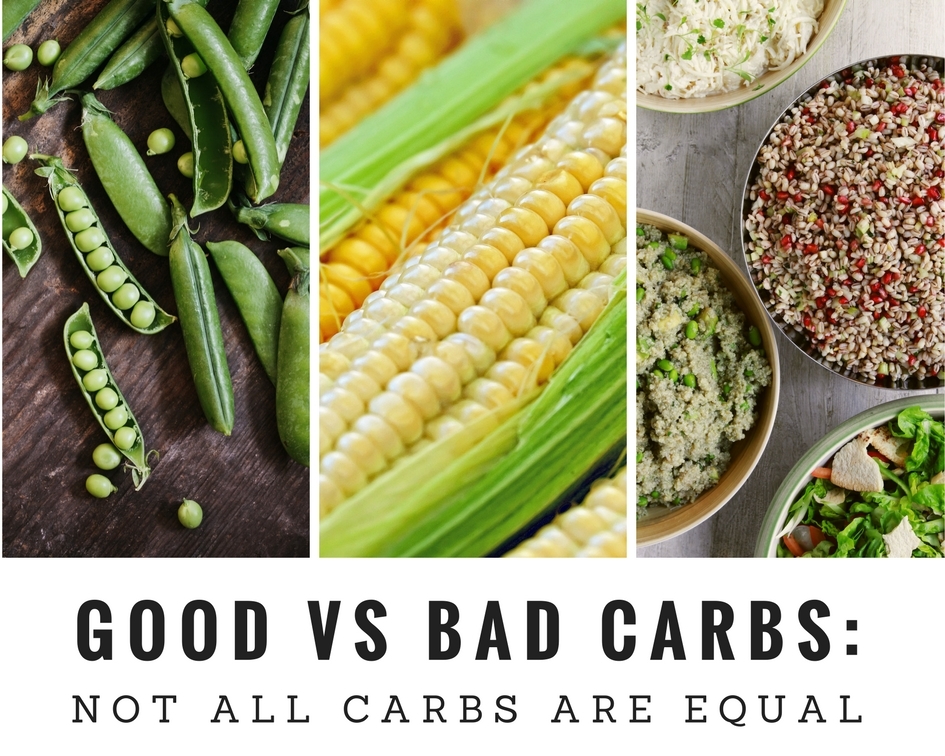All carbs are not evil; it’s just that some of them should be eaten less frequently than others. It’s not that hard to tell the difference between a good carb and a bad carb if you know what a carb actually is.
Carb stands for carbohydrate, which is one of three types of macronutrients in our diet. Unlike the other types of macronutrients (protein and fat), carbohydrates are available for immediate energy. If we don’t need that energy the body stores it in the form of glycogen or fat.
There are two types of carbohydrates: simple and complex. Sugar is the common name for simple carbohydrates. The body quickly absorbs sugar into the bloodstream to use as energy. The reason sugar gets a bad rap is because it’s absorbed so fast that it causes high blood sugar quicker than other types of carbohydrates. When blood sugar is high, the body uses what it can for energy and stores the rest as fat.
Complex carbohydrates take a little while to break down into sugar which means the blood sugar rise is slower and less dramatic. This gives your body time to use that sugar, instead of immediately storing it as fat.
So how can you tell the difference between a complex carb (good carb) and simple carb (bad carb)? It isn’t always super clear, but in general, complex carbs or good carbs have:
- Higher fiber
- Higher protein and/or fat
- Are whole foods/natural/ or unprocessed
Example of good carbs:
- Whole grains such as oats, whole wheat, brown rice, and quinoa
- Beans
- Lentils
- Sweet potatoes
- Potatoes
- Peas
- Corn
- Chia seeds
- Fresh/frozen fruit
- Fresh/frozen vegetables
These types of carbs are slow digesting, low glycemic index, keep you fuller for longer and help with weight loss.
In general, bad carbs have:
- Low fiber
- Low protein and/or healthy fat
- Are highly processed
Examples of Bad Carbs:
- Sugar-sweetened beverages (soda, sports drinks, etc)
- Fruit juice
- Processed flours and baked goods
- Crackers
- Pasta
- Bread
- Cookies
- Pastries
- Desserts
- Candy, ice cream, frozen yogurt
- Potato chips or fries
- Sugar in any form (sugar, dextrose, high fructose corn syrup, maple syrup, honey, agave nectar, etc)
These types of carbs are fast digesting, high on the glycemic index, less filling, and more likely to lead to weight gain when overconsumed. It is recommended to limit consumption of added sugar to less than 25 grams per day.
It’s best to choose high-quality carbs (aka good carbs) the majority of the time and leave simple carbs for desserts and special treats.
